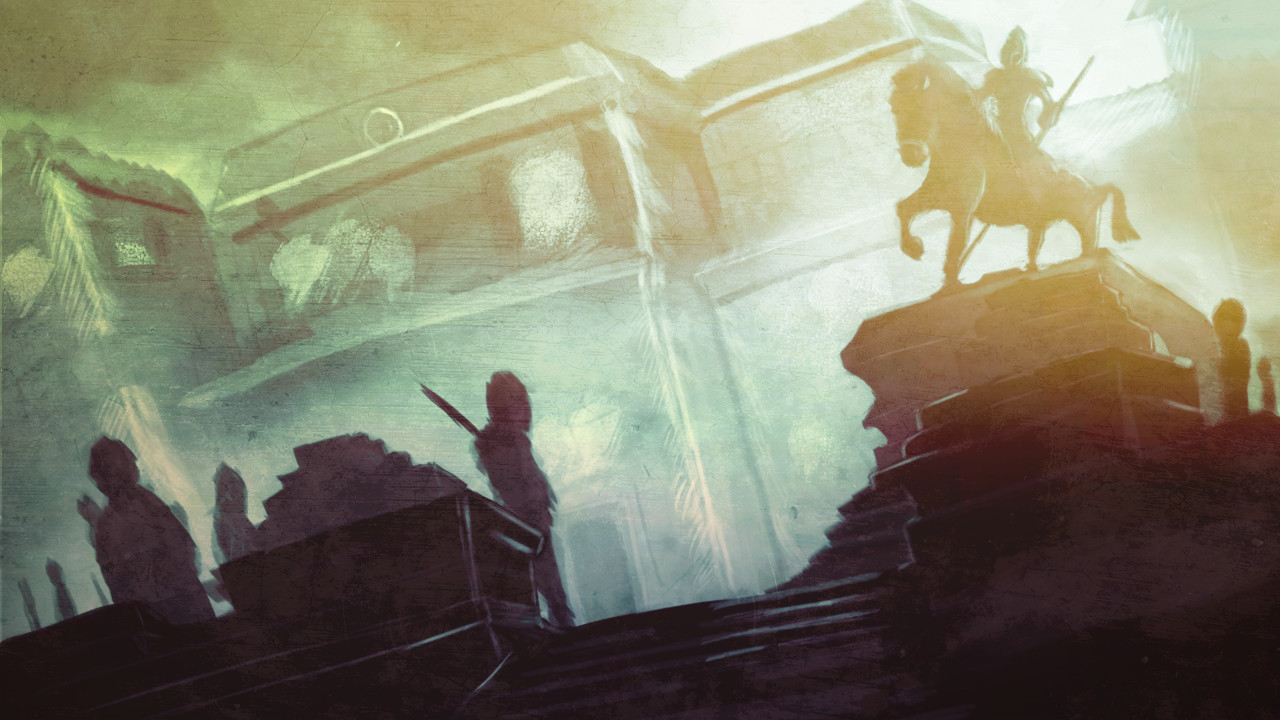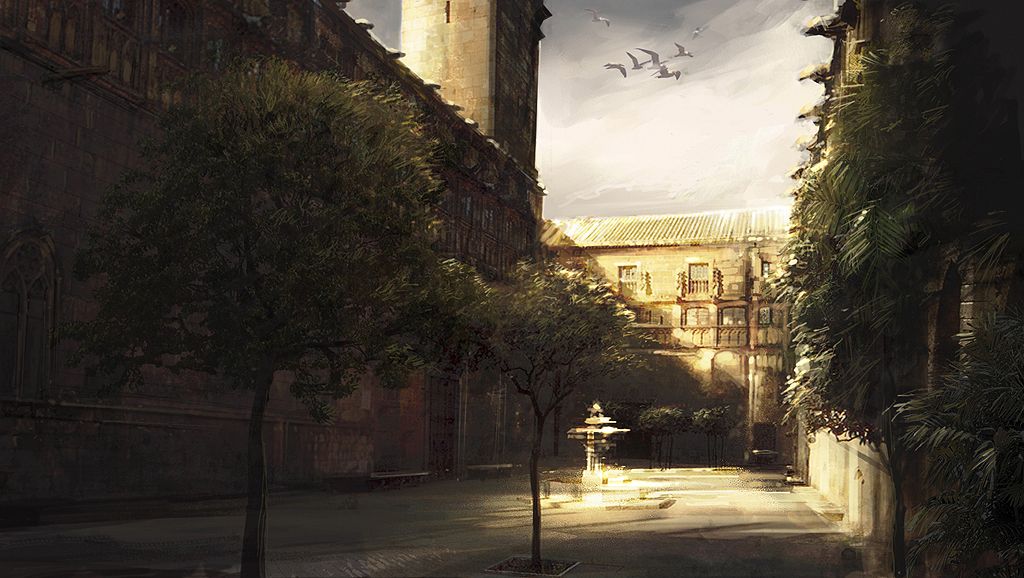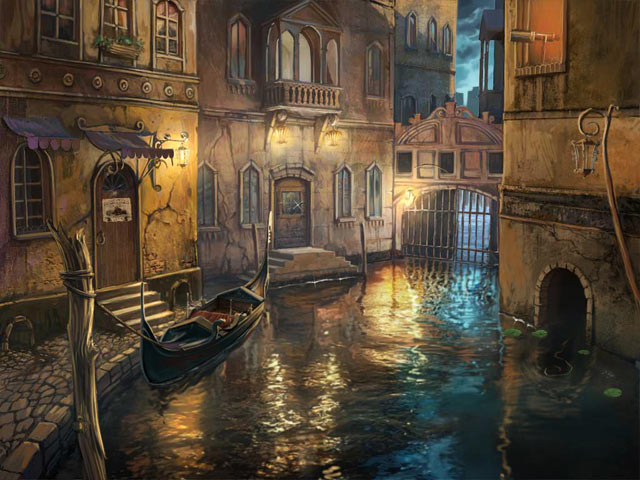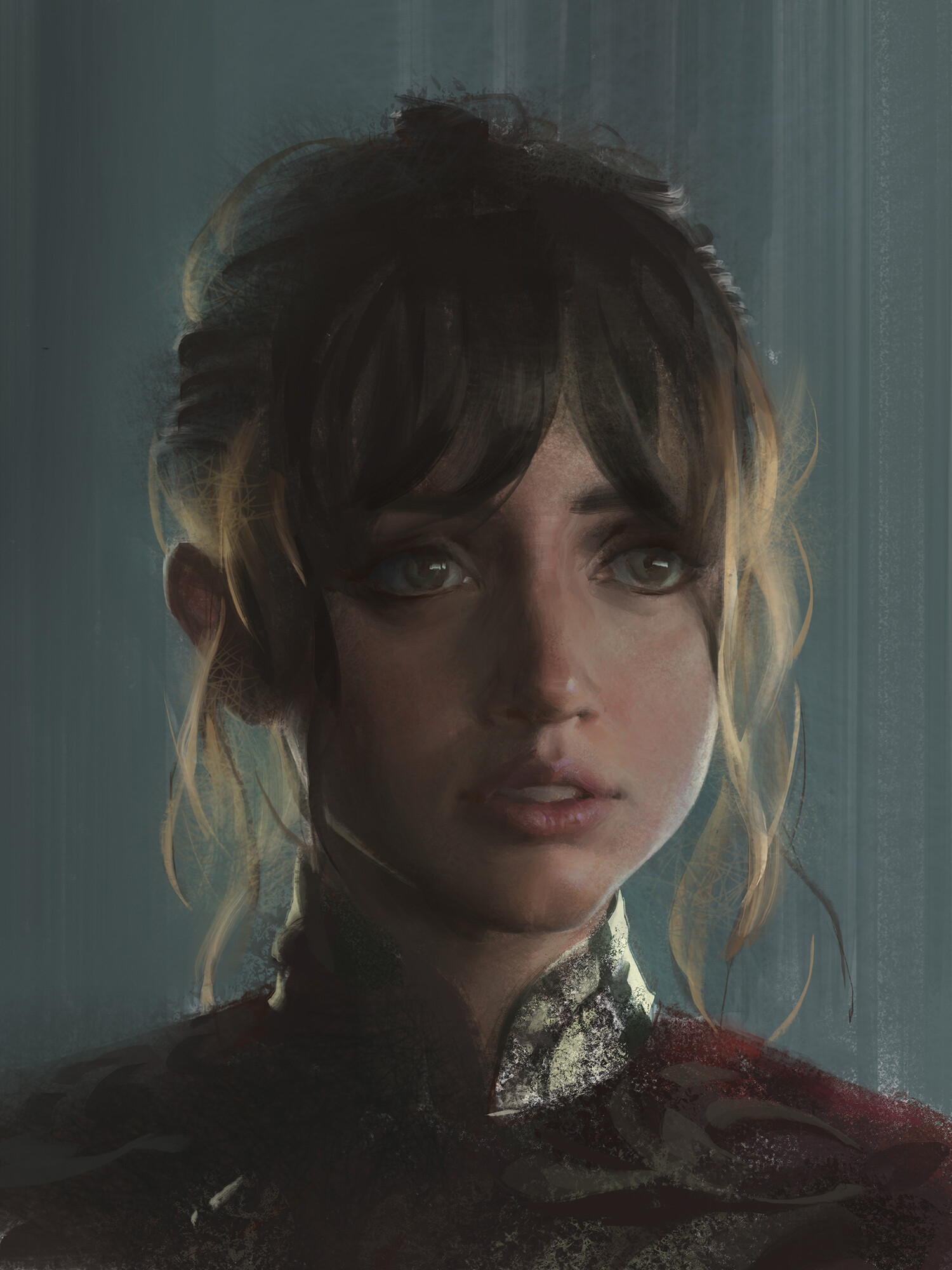THE NOBLE FAMILIES AND GANGS OF BELERNO

Power in the Principality is a loose concept, since there exists no central government and the individual city-states are offered a great deal of independence and flexibility provided they pay their taxes and do not engage in open war with one another. Such a structure has rewarded ruthless, cutthroat behavior in a strong-beat-weak world whereby the noble families of note and prominence are the ones without the moral trappings of lesser houses to engage in questionable and vicious actions to preserve and bolster their influence.
Belerno is no exception to this rule, and even though officially the
Sindacio of the city is set by the Principality's weak executive body,
Sindacios come and go quickly when a critical mass of the nobility find the current
Sindacio to be weak or counterproductive to the interests of the nobility at large.
The
Sindacio of a city is free to structure his or her administration how he or she sees fit, often rewarding particularly loyal or competent noble families with a lofty position in the city's offices. Such offices range from Master of the Treasury to Master-at-Arms, encompassing such duties as collecting taxes, enforcing laws, managing the city watch, or taking on new constructions. The most valued positions in the
Sindacio's court in
Belerno are the Master of the Port and the Master of the Canal, who comprise the agencies responsible for policing and taxing the inflow and outflow of goods throughout the city with a focus on goods bound for other city-states or within the city itself.
Row 1 - the Notable Families of the Court
The Nicoli Family - Sindacio of Belerno
Presently, the city answers to the Nicoli family, helmed by Clemenzia Nicoli, the first female
Sindacio of the city in nearly 80 years. The family sigil is comprised of two winged pegasi holding aloft a blue and white shield with a sunburst at its center, wreathed in blue nightshade flowers, a nod to the Nicoli family's poisoning of the Council of the Thirteen, the original merchant princes of
Belerno in the days of the city as a haven for the rich merchants of southern
Ethol.
In the years since the Nicoli family has been a political powerhouse in the city of
Belerno with strong ties to the political elite of the other cities comprising the Principality. It has leveraged these connections to greater political relevance within
Belerno proper, accepting external aid in political squabbles and negotiating trade deals with other nobles that favor the Nicoli family's key trade goods: wine, cheese, and spices.
Though not new to the position as
Sindacio of
Belerno, the Nicoli family has nonetheless not been so powerful in well over a century, and changes in the
Sindacio are frequent, occurring almost parallel to the death of the previous ruler.
Sindacio Clemenzia has proven herself to be a competent ruler, beloved by the masses and fiercely desired by the male heirs of the other noble households, granting her an immunity otherwise not common to nobles as the other houses wish to keep the consideration of a strategic marriage on the table.
A well-schooled woman of 23 years, uncommon for the women of
Belerno regardless of station, Clemenzia practices realpolitik as taught by the universities of the rest of the Principality, combining the preservation of self interest with pragmatism to great effect. Despite her relatively old age and unmarried status, she remains a sought-after piece in the political game of
Belerno on account of her skill and position, though nothing is more valuable than her network of advisors. Comprised of ranking nobility and merchants from several of the lower houses of
Belerno,
Sindacio Clemenzia's network has spies and courtiers everywhere that inform her every move.
The Castaldo Family - Master of the Port
The Castaldo family has served as the Master of the Port since the assimilation of
Belerno into the Principality, with ties to the Council of the Thirteen of old. Its sigil pays homage to the nautical roots of the city, portraying a seagull with wings outstretched over a shield with a red sunrise over blue and red waters. The red waters represent the blood spilled at the Final Feast, wherein every ranking member of the Council of the Thirteen was poisoned and their underlings killed and tossed into the canals.
Since that day, the Castaldo family has harbored deep-seeded resentment for the Nicoli family, but has served faithfully as the Master of the Port regardless of which house bears the title of
Sindacio. The Castaldo family has even refused the title of
Sindacio in years past, believing it most true to its mercantile roots dealing with the merchants. The real reason for this refusal is far less idealistic, for the Castaldo family is the richest family in the city by far , able to tax the incoming and outgoing merchants however they please. These taxes inevitable trickle up to the
Sindacio's house, but the Castaldo family has long maintained a reputation for cooking its books and pocketing the change, which it uses to sabotage and interfere with the political manuevers of its rivals throughout the city.
Laviano Castaldo III currently rules as the household's patriarch, an aged man nearing his 70th name day. His grandfather was Laviano Castaldo I, richest of the Council of the Thirteen before he was poisoned and subsequently had his throat cut by a Nicoli thug at dinner, his body left to grow rotten and waterlogged in the canals. Though older than most in the city, he bears with him a pride and strength not seen in men half his age, carrying himself with the nobility of a lion.
The Marinaccio Family - Master of the Canal
The Marinaccio family is the youngest noble family to set upon the
Sindacio's court, having earned its keep in its support of the Nicoli's family rise to prominence by its official recommendation of Clemenzia's nomination to the office of
Sindacio. For this favor, it was given sway over the canals of the city, raking in tax revenue from internal trade of the city. In its prior life, the Marinaccio family made its fortune consolidating control over the budding fishmonger business of
Belerno before setting its gaze upon acquiring fishing vessels of all stripes that dotted the Golden Coast. Its sigil reflects its fish-bound roots, portraying a golden fishing spear with two bent prongs upon a rich purple field.
Since its appointment to a seat upon the
Sindacio's court, the Marinaccio family has served the Nicoli family blindly, and is one of its most powerful informants. Since the
Pesce Nero has historically been owned and operated by the Master of the Canal, none can know for certain if the gondolier ferrying this noble or that to his or her destination is a Marinaccio spy, who will gladly pass the information he learns up through the ranks and right into the ears of
Sindacio Clemenzia.
The current patriarch of the family, Telchide Marinaccio, is a fellow graduate alongside Clemenzia Nicoli, and the two share a common appreciation for politics as a science. Their bond is forged through joint studying and hardship, and though the familial bonds are strong, they are dwarfed in comparison to the personal binds between the two families' rulers.
The Stavrakos Family - Master of the Interior
Though rare, there comes once in a generation a family from the other city-states of the Principality in search of a new venture, often helmed by a young upstart with little shot at the family inheritance. Such young pups often marry rich, and leverage their new or adopted family name to grow their personal wealth and power. Such is the story of Lazaros Stavrakos, a man now approaching his 50th year who began life as the 5th son of 5 in the branch of the Stavrakos family in
Vallavonia. He brought with him his family sigil - a pale purple shield decorated in white cloth and bearing a white grape leaf, for which Lazaros has grown known for dabbling in alongside a handful of other luxury foodstuffs.
The Stavrakos family serves the court of the
Sindacio in the capacity of the Master of the Interior, responsible for auditing the trade records of merchants and the finances of the other noble houses to ensure they are honestly paying their taxes to the
Sindacio for the privilege of being allowed to continue their rule in the city. It is a thankless job, one suited for one with nothing to lose. Though Lazaros runs the risk of daily being shaken down or killed for his insistence that the nobility of
Belerno play by the rules (or, more specifically, bend to the wishes of the
Sindacio), it is a niche he can fill that keeps him and his family relevant.
Lazaros met the current
Sindacio while visiting the city, and had a marriage arranged with one of the families within Clemenzia's inner circle to both bolster that family's commitment to the Nicoli family and ensured Lazaros' loyalty since the Nicoli family secured his position within one of the richest cities in the Principality.
The Garbarino Family - Master of the Watch
In the early days of
Belerno the City Watch was less of an organized entity, and comprised mostly of the Council of the Thirteen's private sellswords and household guard enforcing laws within the borders of their respective territories in what is charmingly similar to the ways the gangs of the city operate today. Laws, and more importantly their enforcement, varied wildly from district to district until the assassination of the Thirteen and the assimilation of the city into the Principality. Once the
SIndacio system was put into place, the Watch became a part of the central administration of the city. Presently, the Garbarino family holds that honor, controlling much of the city's regulated and funded watchmen.
The Garbarino family's history stretches back to the time of the Council of the Thirteen, where it made its fortune consolidating and offering sellsword services to the wealthy merchants that dotted the city. Today it still operates the Blackfin Company, a company of mercenaries who are just as skilled navigating the sprawling alleyways of
Belerno as they are fighting ship to ship. Beholden to their fierce and warlike routes, the Garbarino family sigil sports a sea serpent wrapped around a golden trident on a field of deep blue often fringed at the ends with waves.
Though the Master of the Watch has changed hands frequently, none have quite so solid a reputation holding the office as does the Garbarino family. It is believed that the family will often flood the ranks of the Watch with especially loyal members of the Blackfin Company upon hearing the news they are to be replaced, and find themselves back on top through what outsiders refer to a level of bullying and butchery not seen even among the street gangs of
Belerno.
Damiano Garbarino presently resides as head of the family and is a veteran of the Blackfin Company, as is often the tradition of male heirs to the family's head. He is ruthless and cunning, and the 2nd son of 4, the oldest having perished in a pirate raid off the Golden Coast just a few months after ascending to the position of family head. Damiano is loyal to the Nicoli family to a point, since most often the Master of the Watch is the most integral in replacing the sitting
Sindacio none tend to be too friendly towards the ruling family should a better offer arise from powers from outside the
Sindacio's court.
Row 2 - Minor Households and Households of Prior Renown
The Primevera Family - Ruler of the Banca Bianca District
The Primevera Family rules the financial district of the city, which itself does not land it on the
Sindacio's court but gives it prominence nonetheless. Though interest rates and terms of finance are often handed down by the office of the
SIndacio or Master of the Interior, the family in charges of the
Banca are afforded a level of prominence and renown and often maintain a solid share of the taxes they collect from the financing of merchants and foreign powers. Their coat of arms portrays a stag's side profile gazing westward towards the easterly winds upon which the ships enter
Belerno and bring with them wealth in abundance for the
Banca. Often the sigil is wreathed in laurels and adorned with a pair of swords, owning to the family's prior position of prominence in the Principality's long-disbanded standing army as ranking members of the admiralty.
The Corradetti Family - Previous Master of the Canal
Before the Nicoli family was appointed to the position of
Sindacio the Corradetti family held the position of Master of the Canal, serving the previously instated Di Paola family in what can only be described as a lackluster way. Canal tithe revenues to the
Sindacio were cut nearly in half under the tenure of the Corradetti family, due almost entirely to a failure to collect fees in a timely manner. Additionally, the family was so wantonly corrupt and indebted that a severe conflict of interest presented itself in the form of fee skimming, leading to the disgrace and eventual replacement of the family. Now, the Corradetti family has collapsed almost entirely to pay back its debts, its few remaining enriched members scrambling to cling to what they still own. Its sigil still bears the crowned bear of old, a homage to the family's service as
Sindacio back in the early days of the city's assimilation into the Principality but seemingly gone are the days of the sigil's weight and import in any regard.
The Vardaro Family - Sponsors of the Naval Academy of Nine Princes
The Principality of
Biranchini is largely a naval power, scattered along the Golden Coast and the handful of islands that dot it. Its navy, when it so chooses to call its sailors to arms to serve under a unified banner and not under the banners of the city-states that encompass the Principality, is one of the most proficient and skilled in the world.
Belerno was chosen as the place for the Principality's naval academy, where it trains the sailors of the city-states' respective navies and some affluent officers from around the world. The Vardaro family has operated this academy, and is a house otherwise of little regard otherwise save for a long track record elsewhere in the Principality of brilliant admirals and naval officers. Its house sigil is a ship upon a black and white field overtop a sea serpent looking downward clutching a silver star, from which the navy of the Principality derives its highest honor badge.
The Del Duca Family - Ruler of the Temple District
The Temple District houses the temples that are erected in honor of the 11 deities of the south of
Ethol and is nestled far away from many of the poorer districts in the city. It is here that the Del Duca family resides, and has served as the stewards of the Temple District since its creation. It is believed that the early founders of the family were not one family but several, comprising high ranking officials and priests from each of the 11 deities who bound themselves together to bolster their bargaining power and increase the odds that one of the children of the joint family would rise to prominence politically. In the years since, the Del Duca family has drifted increasingly from its religious roots, and has invested heavily in the food supply and shipment of the Principality, for which it takes its sigil. Still, the children of the family are expected to study theology and partake in a year long apprenticeship of one of the temples to honor their heritage.
Row 3 - External Powers and Institutions
The Megherbi Sultanate
East of
Cethol resides the
Megherbi Sultanate, a relatively small player upon the world stage but rich in gold, silver, and spices from the far east. Its inhabitants frequent
Belerno and comprise its largest non-native group, surpassing even others from the continent of
Ethol. The Sultanate's diplomatic arm, the Sons of Uthmaa, interacts extensively with the rest of the world under its golden shield crossed with the Sword of Knowledge and Scroll of Faith. The Scions of Uthmaa spread the Faith of Uthmaa around the world, and there is talk of adding Uthmaa to the 11 deities paid homage to in
Belerno.
The Kingdom of Athad
In its prior life, the Kingdom of Athad was a power which dominated much of
Ethol north of the Golden Coast. In recent years its power has waned, and much of its control over its domain has faltered, leaving only the territory it held at the beginning of its conquest. Slow to adopt the new Cultural Awakening, the Kingdom of Athad has just only recently begun to reinstate trade with the Principality at large for fear that it will decline further into irrelevance. Its kingdom flag mirrors the coat of arms of its ruling family, the Ladztbergs of Stonehill, which is decorated in green and purple featuring symbols of prominence in the mythology and theology of the Kingdom.
The Church of the Eleven
Eleven deities makeup the pantheon of gods in much of
Ethol, but nowhere more devoutly worshipped are the Eleven than in the Principality, which in olden times was the birthplace of the faith. The Church of the Eleven's is headquartered in the Crown City of
Rafiano in the Cathedral of the Eleven Graceful Sacraments, wherein each of the eleven deities are praised jointly. Elsewhere in the Principality, the Eleven are worshipped in their own separate temples.
The Principality of Biranchini
The Principality of
Biranchini represents 11 city-states across the Golden Coast and its surrounding isles, formed as a loose confederacy with a weak central government operating out of the Crown City of
Rafiano where resides the Council of Princes, formed of the 10
Sindacio from the other cities with the
Sindacio of the Crown City serving to break ties when matters of state are addressed in the Council's annual meeting. The sigil of the Principality is purple and blue diamond dotted with 10 stars on either flank, one for each city-state, with one at its center beneath a crescent moon representing the Crown City and is connected to the heavens. This detail is a relic from a time when the Principality was the seat of a great holy empire that dotted much of
Ethol, from the last ruler of which the Crown City takes its name. Beneath the main Principality's sigil rests the white flower and blue leaves of the current
Principe de Principe of the city.
The Holy Empire of Ethol
Though the Golden Coast is perhaps the most profitable and prosperous country on the continent of
Ethol, the Holy Empire of Ethol is the largest. Comprising much of the northern mainland of the continent, the Holy Empire began its life as a religious state worshipping the True God Sommos. Being a monotheistic religion, the faith of Sommos spread rapidly in the early days of Ethol, though its influenced was resisted along the Golden Coast to the south and other reaches further east and west. After a series of civil wars and successions that have left the Holy Empire in disarray and at risk of collapse into several warring nations, the current ruling family under the sigil of the Vine of Sommos (a symbol of everlasting and eternal life) have launched an inquisition to purge nonbelievers and dissenters from the Holy Empire.
The Gangs of Belerno
Gangs take on an identity not too dissimilar from the noble families of
Belerno - each gang's leader, or
capo, owns a territory within the city stretching from a few blocks to sometimes an entire district. All criminal activity in that territory, be it petty pickpocketing or the trafficking of contraband, is subject to taxation by the territory's
capo as a form of homage and gratitude for the ability to commit crime without the potential for retaliation or violence. So long as this sort of trade exists, gangers can operate more or less unimpeded in the territory of others, though like any business enterprise some gangs cannot stand competition in their field of expertise. Violence in the streets is common, especially when conflicting business interests are concerned. Petty thieves crossing gang lines is one matter, smuggling contraband through territory unannounced is another entirely.
The gangs of
Belerno frequently tip off the City Watch or utilize corrupt watchmen to stamp out rivals, or else utilize their own armed bruisers to enforce their will. The streets of
Belerno are constantly abuzz with violence between the gangs, lending the city a reputation for constantly being at war with itself for the City Watch round up and bludgeon or brutalize all those they can in the city if they are not already in the pockets of this
capo or that.
The nobility of
Belerno for the most part are blissfully ignorant to the gangs which benefit them and downright ruthless to those who harm their interests. Meetings between nobles and
capos are not uncommon, and often deals are struck whereby
capos are granted clemency or immunity within a certain district of the city or otherwise given the favors of the nobility in exchange for favors of a more discrete kind. These sorts of arrangements are usually made with the noose hanging over the head of the
capos, for rarely does a noble ever casually approach a
capo with such a proposition and expect to return unscathed or with their coin purses at all full.
Gangs are organized in a loose sort of hierarchy. At the top rest the
capos, who tend to view their authority in their territory as absolute and are constantly vying to steal the territory of other
capos to expand their business interests and influence. Beneath the
capos are the
tenentes who lead the actual crews that do most of the actual work. The specialty of individual
tenentes differs wildly - some are excellent second story burglars, others talented smugglers, and a select few dare the world of politically motivated jobs.
Persona rank below the
tenentes and are the individual crew members who swear fealty up the chain, paying a cut of their earnings to the
tenentes who in turn pay up to the
capos.
Infighting between
tenentes is somewhat commonplace, and is usually left undisturbed unless it threatens key crews or the stability of any
capo's regime. The turnover of
capos is high in such squabbles that reach a critical mass - like any
Sindacio, a
capo must be prepared for a coup attempt at any time from his underlings. Most choose to project strength above all, punishing infractions with a seemingly random zeal in order to appear more omniscient and oppressively present than they truly are. Others, the more paranoid sort, simply keep tabs on all their
tenentes and comings and goings in their territory.




















































